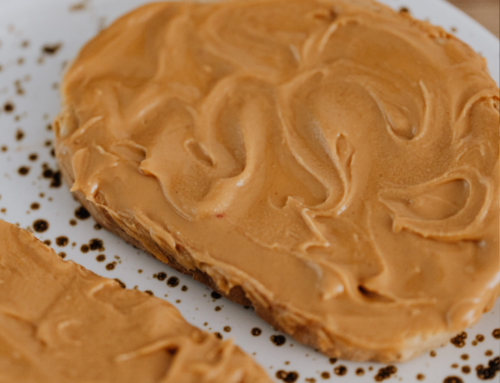As parents, it can be difficult to tell what is really behind your teen’s recent desire to lose weight, newfound interest in “healthy” eating, or preoccupation with food.
As a therapist and founder of The Eating Disorder Center in Rockville, Maryland, I have spoken with many parents about “warning signs” that their children were struggling with, which they initially missed.
There is no guidebook for how to tell if your child is secretly struggling with anorexia, bulimia, or binge eating disorder. Eating disorders often thrive on secrecy and silence. Many children may be unaware themselves that they are starting to slip into a life-threatening mental illness.
The following are some common warning signs that may signify that your teenager is struggling with an eating disorder.
1. Eating rituals or strange eating behaviors.
One sign to look out for is if your teen has started to adopt eating rituals or strange eating behaviors. Eating rituals include behaviors such as, cutting food into tiny pieces, arranging food in certain patterns, or constantly measuring food. Other eating rituals could include using the same utensils or only eating foods in a specific order.
These rituals could be warning signs of anorexia nervosa and could also be an early sign of binge eating disorder. It is important to note that the presence of rituals alone doesn’t necessary indicate an eating disorder, but is something to consider in the context of the person’s other behaviors and attitudes towards food and their body.
2. Excessive or unusual use of condiments and beverages.
Another sign of a potential eating disorder is if your teenager is using condiments/and or beverages in a way that is excessive or strange. For instance, if you notice that your teen is using an excessive amount of mustard, salt, or other spices on their food that would be one red flag that they might be struggling with disordered eating or an eating disorder.
Additionally, a warning sign that your teen may be struggling with an eating disorder or disordered eating is if they begin abusing beverages, such as diet sodas or coffee in an attempt to feel full.
3. Preoccupation with weight, body size and food.
Other warning signs to look out for is if your teen suddenly appears preoccupied with thoughts of their weight, body size, and food. For instance, if your child has an intense fear of weight gain this is one sign that they could be suffering from an eating disorder.
Further, if your teen decides that they are dramatically changing their eating habits-it is important to take note and to observe their motivation and the rigidity of their habits. For instance, your teen might suddenly proclaim that they are “not eating carbs,” or have become a vegetarian (with no history of an interest in this from an ethical standpoint).
Other red flags could be if they appear to stick to only a few “safe foods,” suddenly exclaim that they ‘do not like’ numerous foods which they used to enjoy, become fixed on fat content of foods, hoard food, cook elaborate meals for others but do not eat them, or go to the bathroom frequently right after eating.
Additionally, if you start to notice that large quantities of food are going missing this would be another important sign to look out for.
4. Isolating themselves from people or becoming less interested in things they previously enjoyed.
Another indicator of a teen who may be struggling with an eating disorder is if they become socially withdrawn and start to isolate themselves. It is a warning sign that there may be a deeper problem if your teen no longer desires to socialize and instead is consumed with researching recipes, going to the gym, and/or talking about food, calories, “clean eating,” or dieting.
When someone is struggling with an eating disorder often their eating disorder becomes their primary relationship and begins to take the place of the real relationships in their life.
The Bottom Line
If you notice any of these warning signs, and suspect that your teen may be struggling with an eating disorder, it is critical that you reach out to an eating disorder treatment professional. They can assess your child to see whether they are struggling and if so, provide treatment.
Eating disorders have the second highest mortality rate of any mental illness and individuals who are struggling need access to evidence-based treatment and support.
It is also important to note that you cannot determine whether an individual is struggling with an eating disorder based upon their weight. Eating disorders do not discriminate and those who are struggling may come in all shapes and sizes.
Additionally, early intervention is important to regards to helping people to recover from eating disorders. Therefore, the earlier that you can have them evaluated-the better.
It is also critical that you approach them with compassion and support-rather than judgment. They are not making the choice to feel and behave this way, but with treatment and support they can recover and go on to lead meaningful and productive lives.
Lastly, it’s important that you can be compassionate with yourself. It’s not your fault that you may initially have missed the warning signs. Further, parents and families do not cause eating disorders; however, they can be incredible allies and sources of support to their children in recovery.
Credit: Article written by Jennifer Rollin, MSW, LCSW-C
Source: https://www.theeatingdisordercenter.com/blog/some-warning-signs-that-your-teen-may-be-struggling-with-an-eating-disorder








